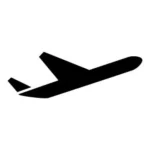The world of aviation has always held a captivating allure, drawing adventurous spirits to soar through the skies. If you've ever dreamt of taking control of an aircraft, obtaining a pilot license is the key to unlocking this exhilarating experience. But what does it entail? Let's explore the ins and outs of pilot licenses.
**Types of Pilot Licenses**
There are various types of pilot licenses, each with its own set of requirements and privileges. Here are the most common:
* **Private Pilot License (PPL):** This license allows you to fly small, non-commercial aircraft for personal or recreational purposes.
* **Commercial Pilot License (CPL):** With a CPL, you can fly for hire, carrying passengers or cargo.
* **Instrument Rating (IR):** This rating authorizes you to fly in reduced visibility conditions, such as clouds or fog.
* **Multi-Engine Rating (ME):** This rating allows you to operate aircraft with more than one engine.
* **Airline Transport Pilot License (ATPL):** The most advanced license, an ATPL qualifies you to fly large commercial passenger or cargo aircraft.
**Requirements for Obtaining a Pilot License**
To obtain a pilot license, you must meet certain requirements, including:
* Be at least 17 years old for a PPL or 18 years old for other licenses.
* Pass a written knowledge test and practical flight test.
* Hold a valid medical certificate demonstrating physical and mental fitness.
* Log a minimum number of flight hours.
**Training and Costs**
Acquiring a pilot license involves a significant investment of time and money. The training typically consists of classroom instruction, simulator sessions, and dual instruction with a certified flight instructor. The cost of training varies depending on the type of license pursued and the location of the flight school.
**Job Opportunities**
With a pilot license, you can pursue a wide range of job opportunities, including:
* Commercial airline pilot
* Corporate pilot
* Flight instructor
* Charter pilot
* Federal or military pilot
**Other Considerations**
* **Medical Requirements:** Pilots must maintain a valid medical certificate throughout their flying career.
* **Recency Requirements:** To remain current, pilots must meet certain flight time and experience requirements.
* **Insurance:** Pilot liability insurance is recommended to protect against potential legal liabilities.
**Soaring to New Heights**
Obtaining a pilot license is a challenging but incredibly rewarding endeavor. The freedom to take to the skies, the exhilaration of controlling an aircraft, and the opportunity to make a career out of your passion are just a few of the benefits that await those who embrace this incredible journey. So, if you're ready to soar to new heights, start exploring the world of pilot licenses today.
